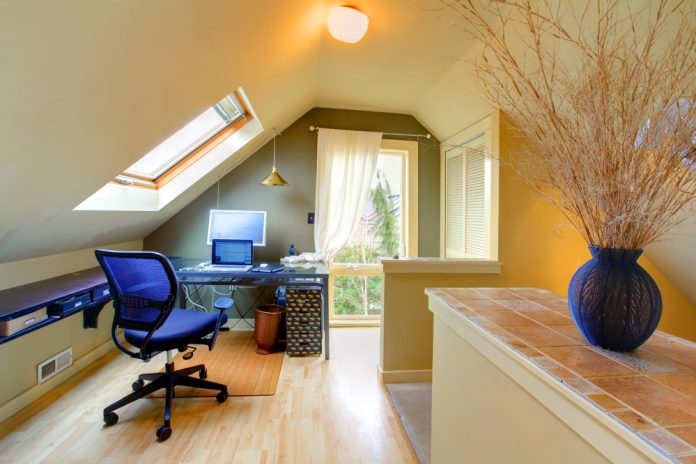Statistics released at the beginning of the year show that more than 99% of private sector business in the UK was done by SME’s (Small and medium-sized enterprises). Of those SMEs, 76% were sole traders in one form or another.
With many small businesses now starting from home, or being run from there full-time, properties with home office potential are more desirable than ever. But before you go ahead and rush into buying your residential-commercial combo property, make sure you do your research first!
What space do you need?
Do you need a workshop for manufacturing or repair? Do you need a store room to keep stock, packaging, or customer information? Do you need a desk and chair, filing cabinet and other office furniture?
Although at first thought you may think it’ll just be you and your laptop on the sofa, a business run usually needs filing cabinets for paperwork, storage for promotional materials, bookshelves for manuals etc. and space for equipment such as a printer.
Have a clear idea of not just what you need right now for a productive home office, but what you might need in five years’ time if your business plan pays off. However, if you do expand more quickly than you’d expect, a site like Goodmove will help you sell your house quickly ready for your upgrade.
Also, don’t forget to think about deliveries, parking and where you will host meetings. If customers are visiting your house, where will they leave their cars? Can large lorries get to your home? Will you be carrying boxes of stock up and down stairs? This is all worth thinking about!
Think about lighting
For architects and designers, having good, natural light will be vital, but it’s just as important for other businesses too. Why make the move from a dimly lit cubicle to end up working in a windowless room? Choose a room that gets plenty of natural light, to help keep you alert through the day.
Even the brightest room needs help on gloomy days, though. Make sure that you have adequate lighting, and sockets to add desk lamps when needed. On a similar note, if you’re thinking of working in a conservatory remember how loud it can get in there when it rains. British Summer, anyone?
Separating work and home
If you’re generally home alone during the day then you may be able to work in any room. If you’re sharing the house with another telecommuter, or you have a young family who are home for all or part of the day then you’ll want to look at properties where you can claim your space. An attic or basement room can work well (depending on the light) as can an outhouse. Garden offices are becoming a popular option, giving you a self-contained work space in a semi-permanent structure.
Balancing the needs for home and work can be tricky, but if you make the right decisions you will not only have the best of both worlds, but a great investment for the future.
Find a Home-Based Business to Start-Up >>> Hundreds of Business Listings.














































